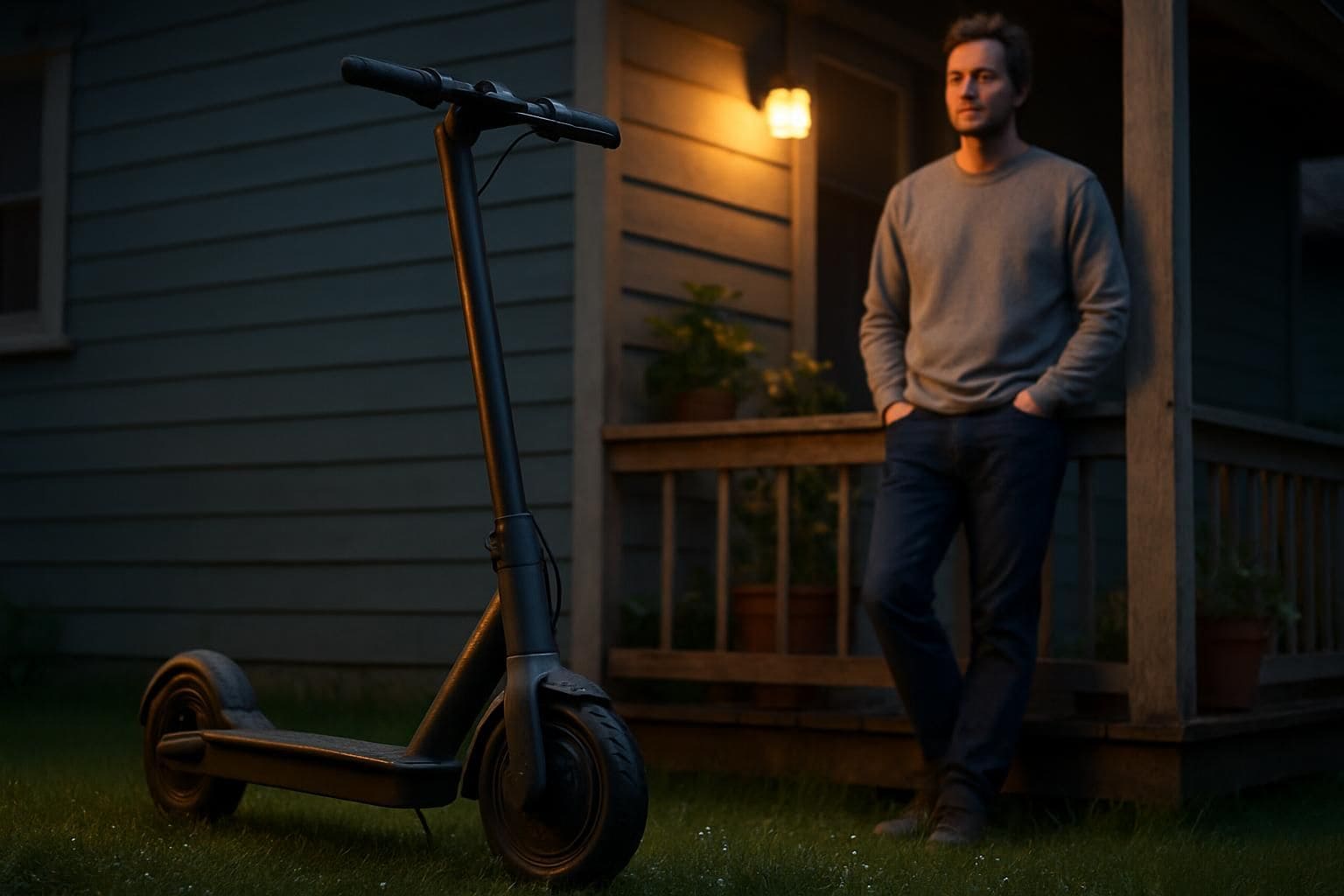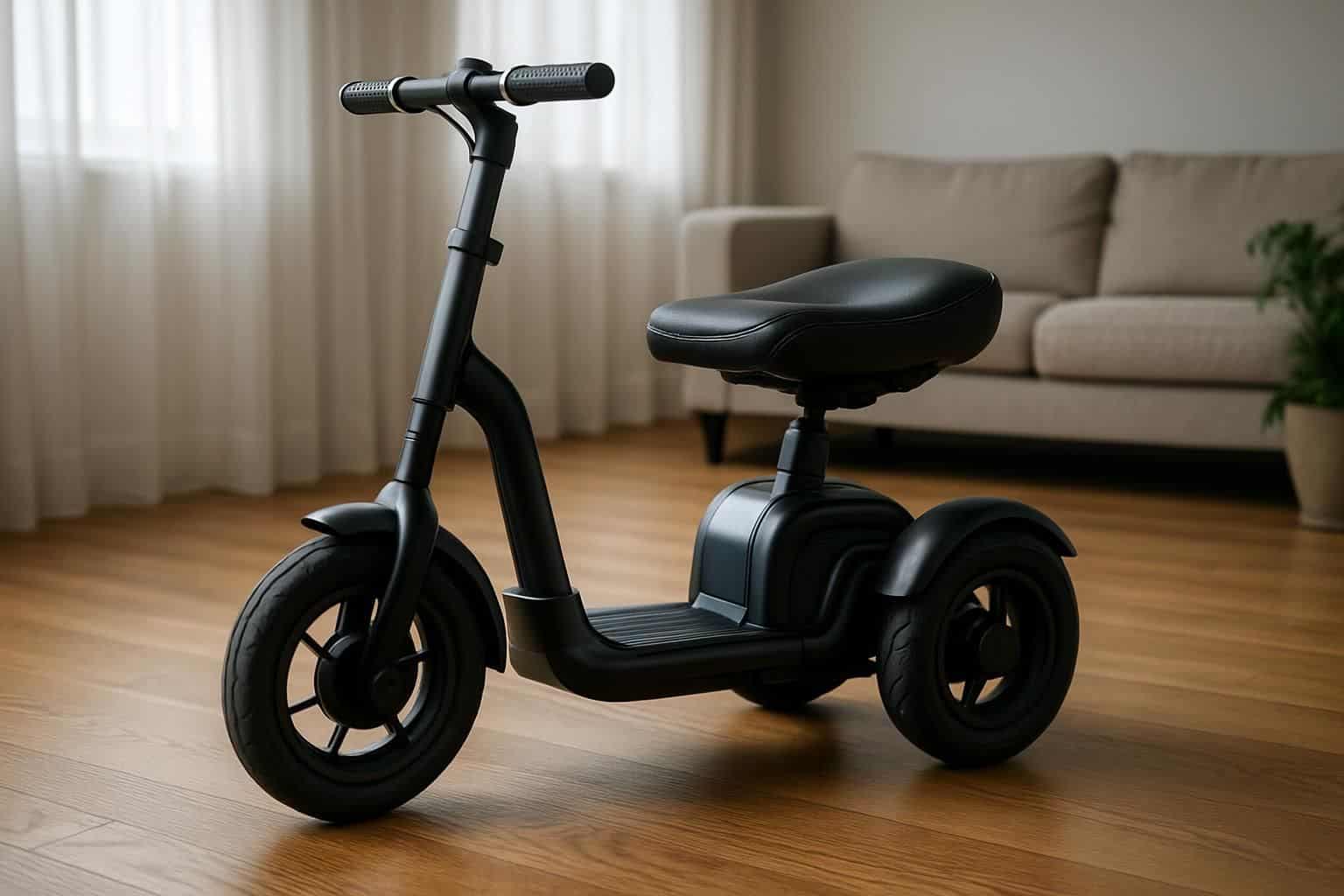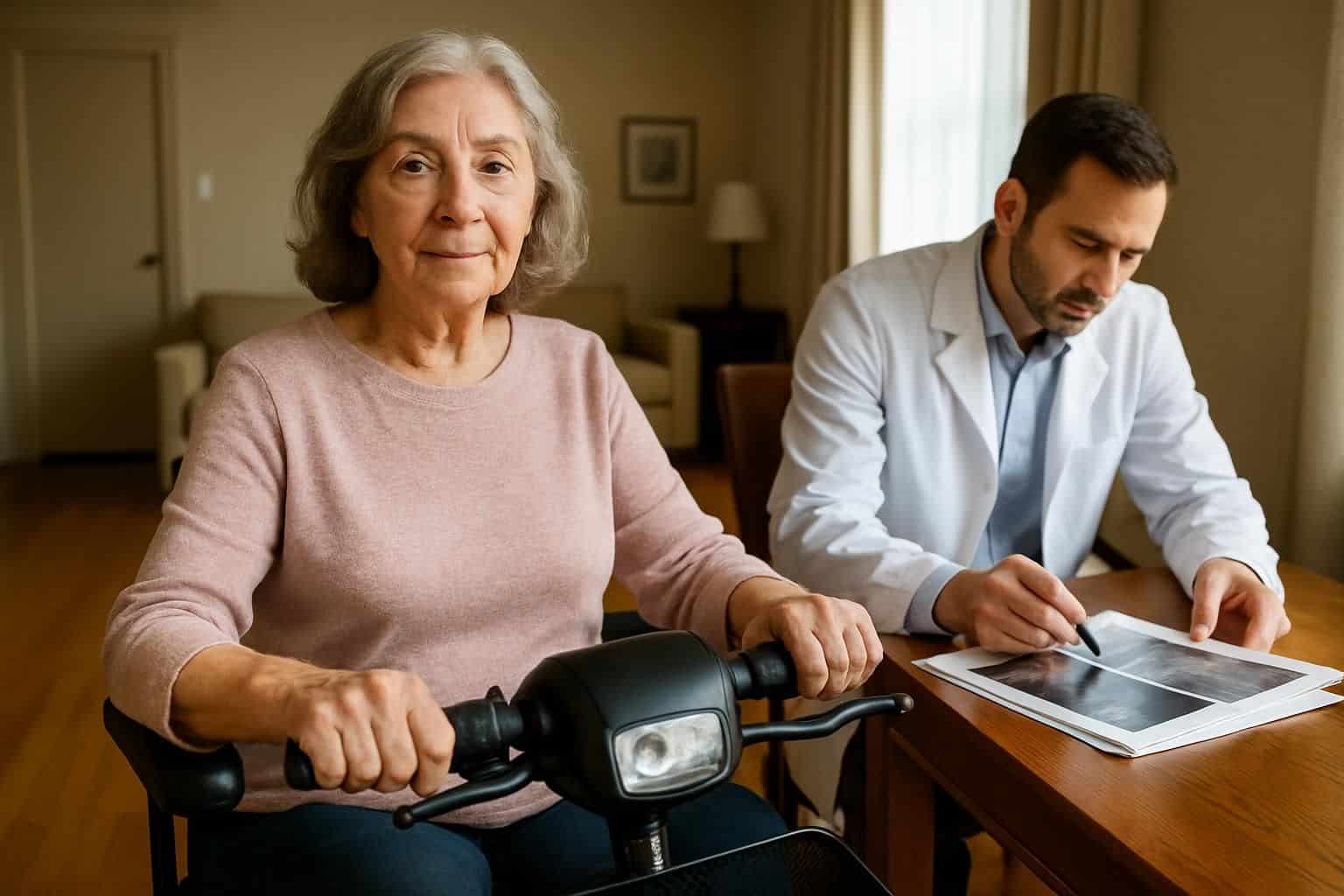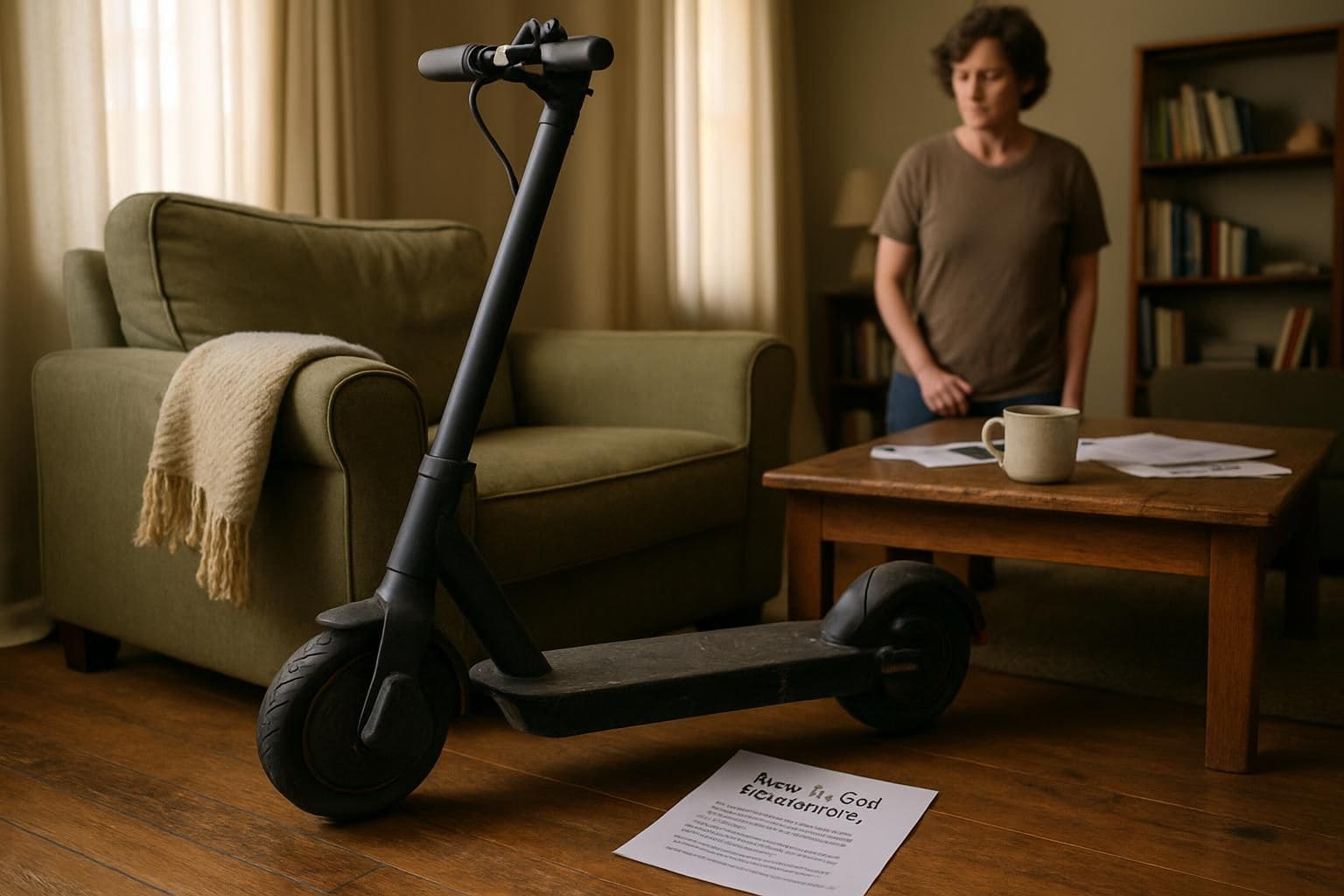Struggling with mobility issues can make everyday tasks feel nearly impossible. Did you know 24% of Medicare recipients aged over 65 regularly use a mobility scooter? If you’re wondering, “does Medicare pay for electric scooters,” this simple guide offers three clear steps to help you qualify under your Medicare Part B plan.
Getting started is easy—learn how right here!
Key Takeaways
Medicare Part B currently covers 80% of electric scooter costs if your doctor confirms it’s medically needed for use at home.
To get coverage, you’ll need an in-person doctor’s appointment, where the doctor prescribes the scooter and explains clearly why walkers or canes won’t work.
Your doctor must also confirm you’re able to safely handle the scooter, and that your home has enough room for it.
Starting in 2025, Medicare will boost coverage to 90%, and they’ll make approvals quicker through an online submission process.
Right now, around 24% of Medicare users over 65 regularly rely on mobility scooters to stay independent and mobile.
Table of Contents
Medicare Coverage for Electric Scooters

Medicare covers electric scooters for people who meet specific health requirements. Your doctor must confirm you need this mobility aid for daily activities at home.
Understanding Medicare Part B (Medical Insurance)

Part B of Medicare gives you essential medical insurance coverage. It covers doctor visits, outpatient care, and even mobility equipment, such as electric scooters on sale, if medically required.
To qualify, you must be 65 or older and have been a U.S. citizen or permanent resident for at least five consecutive years. Medicare Part B uses a cost-sharing structure. Once you’ve met the annual deductible, Part B pays 80 percent of approved expenses for powered mobility supplies.
The remaining 20 percent is your responsibility and counts as out-of-pocket costs. Pricing varies depending on your ZIP code; Medicare.gov uses competitive bids from local providers to decide payment amounts.
Access to proper mobility devices isn’t just about convenience—it’s about maintaining independence and quality of life for those with health conditions that limit movement.
Eligibility Criteria for Coverage

Medicare has clear guidelines on covering electric scooters under its Part B medical insurance plan. You’ll need proof from your doctor that a scooter is medically necessary for you to move safely within your home—not just outside.
The doctor must confirm a health condition significantly limits your ability to walk, such as severe joint arthritis, breathing trouble, or other mobility limitations. Medicare looks closely at how a scooter helps you handle everyday activities, like going to the bathroom or kitchen.
Your home must also have enough space for you to operate an electric scooter safely. Medicare won’t approve coverage if your living area is too cramped for safe scooter use. You’ll need to show you can’t safely rely on a cane or walker—and that you can control a scooter independently.
Doctors will typically check your ability to sit upright, operate scooter controls, and get on and off without assistance. Many people, especially women, find these requirements strict—but Medicare has good reasons for having them.
They ensure scooters get to the people who truly need them. Your health insurance only covers scooters if you meet all these criteria.
Steps to Get an Electric Scooter Covered by Medicare

Getting Medicare to cover your electric scooter takes just three clear steps. Follow this simple process to get the mobility help you need without paying full price.
Consult a Medicare-Participating Doctor
Your Medicare journey for an electric scooter begins with a doctor’s appointment. First off, schedule a face-to-face visit with a doctor who accepts Medicare assignment—phone consultations or video chats don’t qualify in this case.
The doctor will evaluate your health condition, watch how you move around your home, and assess if a scooter would truly make daily tasks easier.
Medicare guidelines require your doctor to confirm that a power scooter is “medically necessary“. That basically means your health makes moving difficult—even if you’re using a cane or walker.
The doctor completes special paperwork describing your condition, clearly outlining why you need a scooter according to medical standards. Feel free to discuss your mobility struggles openly during your visit.
A good healthcare provider can help you handle the paperwork details smoothly, making your Medicare approval process simpler.
Obtain a Prescription and Medical Documentation
After the face-to-face appointment, your doctor needs to write a prescription for your mobility scooter. Medicare uses this written order as proof that you truly need the device. The doctor’s notes must clearly explain why you can’t use a cane, walker, or manual wheelchair.
These notes have to show exactly why a power scooter is essential for you to do daily activities at home. Medicare looks closely for detailed evidence that your medical condition makes the scooter necessary—not simply convenient.
Be sure your doctor clearly describes your walking or standing limitations in these records. Also, request copies of all the paperwork for your personal files—it helps to keep your own records handy.
Find a Medicare-Approved DME Supplier
Once your doctor gives you the prescription and medical paperwork, your next step is choosing a reliable electric scooter supplier. Medicare covers mobility scooters only from approved Durable Medical Equipment (DME) providers.
Your doctor might have recommendations in your area, but you can also search online using Medicare’s handy supplier directory—simply type in your zip code.
Always double-check that the supplier accepts Medicare assignment before you commit. This simple step can save you money. Suppliers who accept assignment charge you just the 20% coinsurance, plus any leftover amount from your Part B deductible.
The DME company handles all the Medicare paperwork, including prior authorization requests—saving you headaches along the way.
I learned about this last year while helping my mom get her electric wheelchair. Choosing the right vendor streamlined the entire process for us. The same guidelines cover motorized wheelchairs and scooters, whether you’re on original Medicare or a Medicare Part C plan.
How Will Medicare Coverage for Electric Scooters Change in 2025?

Good news is coming in 2025 for seniors who need help getting around. The U.S. Centers for Medicare and Medicaid Services will increase coverage for electric scooters and power wheelchairs.
That means more seniors with health problems can access the equipment they need. The approval process will speed up, too—doctors can submit paperwork online, cutting down long wait times significantly.
Right now, the process can take weeks or even months. Last year, my aunt waited three months for her scooter, and she found it very challenging to stay active during that period.
The Department of Health and Human Services also plans to reduce costs for seniors in 2025. Currently, Medicare Part B covers 80% of power wheelchair costs compared to a rascal scooter.
Under the upcoming guidelines, coverage could increase to 90% for seniors needing these items for everyday activities. Caregivers will benefit, too, since they won’t need to push or lift manual chairs as often.
On top of that, the postal-code-based system for locating approved suppliers will be updated with added choices in rural regions. This update will greatly improve access to health-insurance-covered mobility devices for women living outside major metropolitan areas.
People Also Ask
Does Medicare pay for electric scooters for seniors?
Yes, Medicare can cover electric scooters if your doctor confirms it’s medically necessary. Similar to manual wheelchairs, Medicare usually approves powered scooters when they’re essential for daily living. To qualify, you’ll need a doctor’s prescription and appropriate Medicare coverage.
What steps should I follow to have Medicare pay for my scooter?
First, schedule a face-to-face appointment with your doctor to confirm your need. The doctor must clearly state the medical necessity in writing. Next, locate a Medicare-approved scooter supplier near your home zip code. Finally, submit all required paperwork and await Medicare’s approval before picking up your scooter.
Are special home features needed to qualify for a Medicare-approved scooter?
Your home should allow easy access and safe scooter use. Medicare checks whether you have adequate space to maneuver and store the scooter safely inside your home. Small apartments or narrow doorways could cause issues with scooter approval—so keep that in mind.
Can geriatric care specialists help seniors get mobility devices covered by Medicare?
Geriatric care doctors are often ideal for obtaining mobility device approval from Medicare. These specialists know Medicare rules thoroughly and understand how to clearly explain and document your specific needs. They may also suggest other useful products—for example, adult diapers, if necessary—to help seniors live more comfortably.
